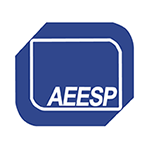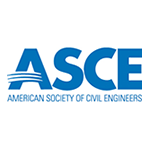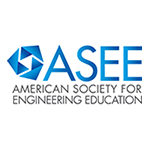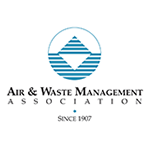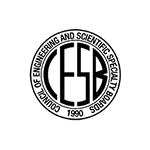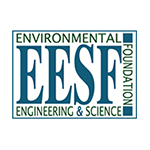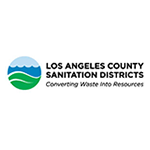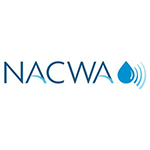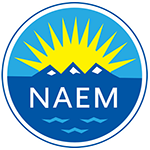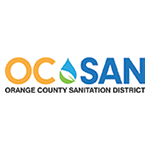- Home
- Contact Us
- AAEES Staff
- AAEES Board of Trustees
- American Academy of Environmental Engineers Certification Board
- American Academy of Environmental Scientists Certification Board
- AAEES Committees
- State and Regional Representatives
- Representatives to Other Organizations
- Previous Leadership
- Interactive Who's Who
- Student Chapters
- Tau Chi Alpha
- News & Events
- Awards
- AAEES Awards Criteria
- 40 Under 40 Recognition Program
- Edward J.Cleary Award
- Excellence in Environmental Engineering and Science Education
- Gordon Maskew Fair Award
- Honorary Member
- International Honorary Member
- Ralph and Joe Bales Graber Science Award
- Stanley E. Kappe Award
- Environmental Communications Awards Competition
- Excellence in Environmental Engineering and Science Competition
- The AAEES Chapter Blue Marble Award
- Publications
- Join
- Members
- Program Support
- Jobs
40 Under 40 Recognition Program
The American Academy of Environmental Engineers and Scientists is proud to introduce the AAEES 40 Under 40 Recognition Program. This program was introduced to recognize talented individuals who have, either personally or as part of a team, been responsible for helping to advance the fields of Environmental Science or Environmental Engineering in a demonstrable way within the last 12 months. Winners are chosen by a panel of past recipients who weigh equally business successes and civic/philanthropic activities. For the full list of eligibility criteria and information on how you can submit nominations for a worthy Environmental Scientist or Environmental Engineer, click here. 2024 Recipients
Muhammad Ali, Ph.D. Dr. Muhammad Ali started as the Martin Naughton Assistant Professor of Environmental Microbiology in the School of Engineering at Trinity College Dublin in 2022. His research group explores microbial and ecological interactions in natural and engineered ecosystems, such as water-related infrastructures. He has secured more than €1M in research funding in 2023 from national organizations such as Science Foundation Ireland (SFI), the Sustainable Energy Authority of Ireland (SEAI), Irish Environmental Protection Agency (EPA), and industrial partners like dCarbonX. Additionally, Dr. Ali is a course director for the Postgraduate Diploma in Project Management program at TCD. He is also leading efforts to establish a Water Center at TCD, which will act as a hub for interdisciplinary research, education, and innovation on water-related issues. Dr. Ali was a research scientist at King Abdullah University of Science and Technology (KAUST) and co-founded Mawardna, a spin-off specializing in decentralized wastewater treatment solutions that emerged from his research at KAUST. This spin-off has raised more than US$2M in non-dilutive funding for the scale-up of its innovative AGS-GDM™ technology. Throughout his career, he has won over US$5M in funding as a PI or Co-PI. Dr. Ali obtained his PhD in Environmental Engineering from Hokkaido University in Japan.
Adib Amini, Ph.D., P.E., ENV SP, BCEE Dr. Adib Amini serves as Program Director at University of Wisconsin-Madison in the College of Engineering’s Office of Interdisciplinary Professional Programs (InterPro), with particular focus on the water, wastewater, stormwater, and sustainability fields. Dr. Amini also works in engineering consulting, serving clients from the facility planning phase through design and construction. Dr. Amini holds a Ph.D. in environmental engineering and has expertise in drinking water and wastewater treatment, sustainability, resilient design, technology innovation, life cycle environmental impact assessment, and renewable energy. He has worked on a variety of water/wastewater projects from the facility planning phase through design and construction, and has worked with both municipal and industrial clients, providing high quality, tailored solutions to meet their needs. Dr. Amini’s water/wastewater work has included the design of novel technologies, including on-site energy systems at water/wastewater facilities. He spearheaded the designs for the first two wastewater treatment facilities in Iowa that are 100% powered by on-site renewable energy systems. Dr. Amini also invented a novel system for ventilation of rated spaces, such as wastewater headworks buildings, for which he holds a provisional patent. Dr. Amini has spoken widely at conferences on topics related to water/wastewater treatment, PFAS, on-site energy systems, resilient infrastructure, and diversity, equity & inclusion. Dr. Amini is also a founding organizer of FRESHwater, an annual program for young people of underrepresented backgrounds, where they engage in a weeklong summer research and educational experience in the water/wastewater field, in collaboration with IAWEA and IA AWWA.
Aaron William Bivins, Ph.D., P.E., BCEE Dr. Aaron Bivins is a public health engineer leading research to mitigate infectious diseases via design and policy. His work is situated at the intersection of environmental microbiology, engineering, and human health. He and his team use environmental microbiology techniques to observe microorganisms in the built and natural environments. They use these observations along with quantitative techniques to characterize health risks associated with human exposures mediated by the environment. When integrated with design and policy decision-making, these techniques can be used to minimize the burden of infectious diseases on human health. In conjunction with his research, Dr. Bivins has spent significant time working across cultures, including projects in India (2017 Fulbright-Nehru Scholar), Mozambique, Nicaragua, Bolivia, and Jamaica. His research interests are informed by his professional practice designing various hydraulic infrastructure, such as water distribution, wastewater collection, and stormwater systems. Dr. Bivins completed his Ph.D. and master’s degree in environmental engineering at the Georgia Institute of Technology. Prior to graduate school, he worked as a consulting civil engineer in Savannah, GA, and is a licensed Professional Engineer and Board Certified Environmental Engineer. Dr. Bivins is currently an Assistant Professor of civil and environmental engineering at Louisiana State University in Baton Rouge, Louisiana.
Manisha Choudhary, Ph.D. Dr. Manisha Choudhary earned her master’s and Ph.D. in Chemical Engineering from the Indian Institute of Technology (IIT) Kharagpur, India. She is currently a Postdoctoral Research Associate in the Department of Civil and Environmental Engineering at the University of Maine, Orono, USA. Prior to this, she was a postdoc at Temple University, Philadelphia, USA. Dr. Choudhary's exceptional contributions to environmental engineering have significantly advanced the field, mainly through her development of novel water treatment technologies, such as non-thermal plasma technology, and research on emerging contaminants such as PFAS. Her leadership in designing pioneering wastewater treatment facilities, integrating PFAS sensor design, and promoting graphene-enabled water treatment systems has established her as a vital figure in STEM education and environmental advocacy. Additionally, Dr. Choudhary's commitment to social responsibility is commendable. During her academic tenure at IIT Kharagpur, she was actively involved with the Gopali Youth Welfare Society, focusing on educating underprivileged children. Her commitment to STEM education is evident in her workshops for the Maine Girl Scouts, where she inspired young girls to pursue careers in science and engineering. Her interdisciplinary project "Co-Translation: Making the Invisible Visible—Nanotechnology and Art versus PFAS and Microplastics" at the University of Maine not only highlighted the environmental impacts of PFAS and microplastics but also sparked public interest and engagement in these issues. Dr. Choudhary's comprehensive portfolio of publications and community initiatives reflects her innovative and inclusive approach, positioning her as a dynamic force in environmental engineering and a supporter of diversity in STEM.
Ashutosh Deshpande, REP, ENV SP, QISP, AAEES Member Mr. Deshpande earned his B. Tech in Civil and Environmental Engineering from VJTI, Mumbai, and his MS from Texas A&M University System. Mr. Deshpande is a Registered Environmental Professional and works as Environmental Manager for Trihydro’s Industrial, Commercial, & Energy Services Group, which is critical to the firm’s success. Throughout his career, Mr. Deshpande has provided a wide array of services to the industry to ensure compliance with various regulations. He regularly applies his diverse technical expertise and regulatory experience to strategic project planning and implementation. Mr. Deshpande has specific experience managing and overseeing large-scale projects requiring collaboration and coordination between specialty consultants, contractors, regulators, and client/owner stakeholders. He has managed, supervised, and conducted work and served as a project manager and field project lead, overseeing the implementation of various programs at various industrial and commercial facilities at sites in the United States, South America, Mexico, the Middle East, and Asia. He is knowledgeable and experienced in writing Stormwater Pollution Prevention Plans, Spill Prevention Control and Countermeasure Plans, and Sustainability Management Plans. Mr. Deshpande is also experienced in developing reports and permit applications for numerous regulatory agencies. Mr. Deshpande is an active member of national and international organizations and has presented research work in the Environmental Engineering and Sustainability field in various top journals. He has authored various research papers in leading journals and conferences and has been on panels for peer review for multiple publications and conferences. He has received nationally and internationally recognized awards for his projects and research work. In each of his roles, Mr. Deshpande delivered success on various business objectives by applying focused personal integrity, a work ethic, and a passion for problem-solving. He also holds various licenses, namely ENV SP, QISP, and ISO Auditor, which are vital and exemplify dedication to the Environmental Industry. His experience and skills establish him as a valuable asset in the Environmental Industry.
Cecilia Maria Dominguez, P.E., AAEES Member Cecilia Dominguez stands out as a trailblazer and leader in her field. With a robust educational background, including a B.S. in Environmental Engineering from UC Irvine, a Multiple Subjects teaching credential from LMU, and an MS in Environmental Engineering & Science from Stanford University, Cecilia has seamlessly integrated her passion for education and engineering throughout her career. In her more than six years with L.A. County Sanitation Districts, Cecilia has earned her P.E. and now hold the pivotal position of Operations Engineer, overseeing the facility’s Solids Processing. In this capacity, she collaborates with Operators, Electricians and Maintenance crews to ensure the seamless day-to-day functioning of critical processes for the 1,200 wet ton/day production (sludge screening and dewatering, solids conveyance and offsite hauling). Her expertise extends to being the go-to speaker and presenter on biosolids, asset management and condition assessment at The Warren Facility). Cecilia’s commitment to the community is exemplified by her drive to bridge education to engineering, which began with her 3 years serving in Teach for America. She currently leads education tours at The Warren Facility for diverse groups and presents at local schools on the wastewater treatment process. Acknowledged for her outstanding contributions, she has been featured in CWEA’s Clean Water Magazine, emphasizing the importance of mentorship and diversity in the workplace. Her colleagues speak glowingly of her technical expertise, dedication to mentoring, and significant contributions to STEM education programs. A transformative leader, innovator and inclusive mentor, Cecilia Dominguez exemplifies dedication to environmental engineering, education and community service.
Danielle Dorley Danielle Dorley is a civil engineer with expertise in alternative energy projects and water resources. Currently serving the Energy Recovery section at the Los Angeles County Sanitation Districts, she manages alternative energy projects such as solar and battery storage, fuel cell, and hydrogen initiatives. Her responsibilities extend to developing clean energy and renewable natural gas from landfills and wastewater reclamation plants and overseeing the purchase and sale of green energy commodities. Danielle was also recently selected as a United States delegate for the 2023 Student Energy Summit in Abu Dhabi, the world’s largest youth-led energy conference for emerging leaders in the global energy sector. Previously, Danielle led environmental cleanup efforts and regulatory compliance of a 36-acre former oil refinery that was recognized with the prestigious Excelsior Award from the Los Angeles County Sanitation Districts for going above and beyond. Holding a Master of Science in Civil and Environmental Engineering from the University of Iowa, she demonstrated her commitment to equality as the Diversity, Equity, and Inclusion Chair for the Graduate and Professional Student Government where her efforts were honored with Chair of the Year by her peers. With a Bachelor of Science in Civil Engineering from the University of Southern California, Danielle held significant leadership roles within the National Society of Black Engineers, including Region VI Programs Chair, Chapter President, and Chapter Vice President. Danielle is passionate about finding sustainable solutions to the world’s energy crisis and driving positive change in the food-energy-water nexus.
Nicole L. Fahrenfeld, Ph.D., AAEES Member Nicole Fahrenfeld, Ph.D, is an Associate Professor in Civil & Environmental Engineering at Rutgers, The State University of New Jersey. Dr. Fahrenfeld’s lab works at the interface of environmental organic chemistry and environmental microbiology to promote water quality, with applications in natural, urban, and engineered systems. Recent projects include microbial source tracking in estuarine watersheds, wastewater-based epidemiology for antibiotic resistance, drinking water biofilter microbiomes, and microplastic studies across water matrices. Her lab has been funded by CDC, NOAA, WRF, and NSF including a 2019 CAREER award. She earned her BS in Environmental Engineering from Johns Hopkins University, MS in Environmental Engineering and Science from Clemson University, and PhD in Civil Engineering with a concentration in Environmental and Water Resources Engineering from Virginia Tech. Dr. Fahrenfeld is an Editor at Water Environment Research and serves on the WEFTEC Program Committee and NJ AWWA Technology Transfer Committee. She is a past-President of the Theobald Smith Society (NJ Chapter of ASM) and past-chair of the AEESP Membership & Demographics Committee where she helped reboot the cross-institution junior faculty mentoring program. Dr. Fahrenfeld wishes to thank her mentors, collaborators, family, and, mostly importantly, her students for supporting the lab’s mission in research and outreach.
Ashley Geesman Ashley Geesman is currently a Water/Wastewater Engineer with HDR, Inc in Ames, Iowa. Ashley’s work primarily focuses on the design of water and wastewater treatment facilities as well as project management and construction administration. Ashley received a BS in Chemistry from Iowa State University and worked for the City of Ames Water Laboratory where she developed an interest and passion for water treatment technologies. While working in the lab, Ashley completed her MS in Environmental Engineering with a research focus on designing Aerobic Granular Sludge (AGS) systems using the BioWin process model. Prior to HDR, Ashley served as an Environmental Engineer with the City of Ames Water & Pollution Control Department where she supported various technical and design projects. She currently serves as the Membership Committee Chair for the Iowa Section of AWWA and on the Education Committee for IAWEA. To promote increased collaboration and foster partnerships within the regional community, Ashley developed a mentoring program that pairs new AWWA members and first-time conference attendees with established leaders in the Iowa water industry.
Mohamed A. Ghorab, Ph.D., AAEES Member Dr. Mohamed Ghorab is a toxicologist scientist at the US Environmental Protection Agency's Office of Chemical Safety and Pollution Prevention (OCSPP), Dr. Ghorab has performed human and envritonmental hazards and risk assessments for a variety of industrial chemicals and pesticides to aid in evaluating and to determine safe levels for chemical use in dietary, residential and occupational settings. He has also participated in multiple national and international efforts including the development of methods, guidance, and policy for validation and reducing the use of animals in chemical testing and the development of approaches for human and ecological risk assessment. Dr. Ghorab plays an exceptional role in advancing the One Health approach within the US EPA's Office of Research and Development (ORD). Prior to his current role, Dr. Ghorab's tenure at the National Exposure Research Laboratory (NERL), Office of Research and Development (ORD) in Cincinnati, Ohio, he was marked by leadership and innovation. As a research toxicologist and team leader, he made significant contributions to the development and validation of acute and chronic toxicity testing methods to enhance our understanding of exposure, effects, and distribution of emerging contaminants, highlighting his leadership and research capabilities. Dr. Ghorab holds a PhD in Environmental Toxicology from Michigan State University and Alexandria University. He also completed postdoctoral fellowship training in environmental toxicology at Michigan State University's Wildlife Toxicology Lab, which added to his academic and research expertise and he has been part of cleanup efforts under the Pine River Superfund program. Dr. Ghorab serves as a visiting faculty/Mentor at the University of California, Davis. Where he guides a diverse group of STEM students, emphasizing career development in toxicology. Internationally, Dr. Ghorab's expertise is recognized through his selection as an expert toxicologist for the WHO's Joint FAO/WHO Meeting on Pesticide Residues (JMPR), highlighting his global impact on health and public safety. Dr. Ghorab has been a member of AAEES since 2022. He has over ten peer-reviewed articles to his name and has served as a reviewer on several National Institute of Health and as well as multiple peer-reviewed toxicology journals.
Katie Greenstein, Ph.D., P.E. Katie Greenstein, Ph.D., P.E., is a Water Quality Specialist and Water/Wastewater Engineer at HDR. In her role, Katie works with municipal and industrial clients to develop strategies to navigate state and federal water quality and drinking water regulations. Prior to working for HDR, Katie served as a Senior Engineer and Supervisor of Water Quality Monitoring and Assessment for the Iowa Department of Natural Resources. Katie also worked as a post-doctoral researcher at Southern Nevada Water Authority, studying biofiltration and cyanotoxins, and served as a chemist at Des Moines Water Works. She graduated with a B.S. in Environmental Engineering from California Polytechnic State University and a Ph.D. in Civil and Environmental Engineering from the University of Iowa.
Kerry Hamilton, Ph.D. Dr. Kerry Hamilton is an Assistant Professor with a joint appointment in the School for Sustainable Engineering and the Built Environment and the Biodesign Institute Center for Environmental Health Engineering at Arizona State University. She received her doctoral degree in Environmental Engineering from Drexel University in 2016 and Master of Health Science (MHS) degree in Environmental and Occupational Hygiene from Johns Hopkins University in 2009. She was a Fulbright Scholar to Australia in 2015 and Public Health Fellow at the US Environmental Protection Agency from 2009-2011. Dr. Hamilton is an expert in the field of quantitative risk and decision analysis, particularly in the area of quantitative microbial risk assessment (QMRA). Her research focuses on predicting and preventing environmentally transmitted diseases by using computational and microbiological tools. She quantifies and characterizes pathogens in environmental media using culture- and molecular-based tools. Using this information, she and her team create actionable models for developing efficient environmental engineering and public health policies as well as management strategies that reduce infectious disease. She has applied these tools in areas of managing pathogens that grow in engineered water systems, understanding the environmental dimensions of antibiotic resistance, and informing microbial safety in food and agriculture.
David Hanigan, Ph.D., AAEES Member Dr. Hanigan completed a BS and MS of Civil and Environmental Engineering at the University of Missouri. His PhD research was conducted at Arizona State University and investigated the occurrence and formation of disinfection by-products; carcinogens that are reaction products of drinking water disinfectants. As a post-doctoral scholar at Arizona State University he studied the environmental implications and trade-offs of nanomaterial use in sunscreens over the more conventional organic chemical ultraviolet light filters that have been used in sunscreens for decades. He joined the University of Nevada, Reno in the Fall of 2016. Research that his team conducts focuses on water reuse and environmental chemistry, with an emphasis on reducing the environmental loading of anthropogenic chemicals. He has secured ~$3.8M in competitive funding from the Department of Defense, the National Science Foundation, the US Department of Agriculture, the Water Research Foundation, and other private and public entities. His team has published more than 50 peer-reviewed manuscripts which have been collectively cited more than 1800 times. He is a registered professional engineer and in his free time he enjoys mountain biking, backpacking, and spending time with his wife and two children.
Mahmudul Hasan, Ph.D. Dr. Mahmudul Hasan is currently serving as the Chief Technical Officer at the Baltimore City Department of Public Works. His interests include biosolids treatment and resource recovery to foster a circular economy, water reuse, and innovations in water and wastewater treatment technologies. With a knack for advancing projects from bench-scale studies to pilot and full-scale applications, Dr. Hasan excels in managing design processes, treatment conceptualization, and technology assessment. Beyond his professional contributions, Dr. Hasan is dedicated to educational outreach, teaching, and mentoring both graduate and undergraduate students, as well as high school students, to encourage their pursuit of STEM careers. He is also actively involved in volunteering for professional organizations such as the Water Environment Federation and the International Water Association, demonstrating his commitment to the field and community. Additionally, he serves as an active committee member for several significant conferences and holds positions as Chair and Vice-Chair in multiple professional committees. He also contributes as a journal reviewer for water/wastewater and environmental engineering publications. Dr. Hasan is passionate about applied research and development in water/wastewater engineering, evidenced by his lead and co-authorship of numerous journal articles, conference papers, and book chapters. His academic background includes a B.S. and M.S. in Civil Engineering from the Bangladesh University of Engineering and Technology, followed by an M.S. and Ph.D. in Civil and Environmental Engineering from George Washington University. His career reflects a deep commitment to improving water and wastewater treatment processes, contributing to environmental sustainability, and fostering the next generation of engineers.
Greg Lackey, Ph.D. Dr. Greg Lackey is a research engineer at the United States Department of Energy (US DOE) National Energy Technology Laboratory (NETL) in Pittsburgh, Pennsylvania. He received his B.S. in Environmental Systems Engineering from the Pennsylvania State University (2011) and an M.S. (2013) and Ph.D. (2017) in Civil and Environmental Engineering from the University of Colorado Boulder. Dr. Lackey has expertise in subsurface flow and transport modeling, data analytics, and risk assessment. He has dedicated his career to documenting the conditions of US oil and gas well infrastructure to better understand its associated environmental and human health risks. Dr. Lackey currently leads projects at NETL under the US DOE’s Undocumented Orphaned Wells Research Program, Technical Assistance for the Methane Emissions Reduction Program, and Carbon Storage Advanced Research and Development Program. These efforts focus on characterizing the condition of orphaned wells, reducing emissions from marginally productive wells, and quantifying the risks that legacy wells pose to future subsurface energy projects. Outside work, Dr. Lackey is a husband and father of three amazing children. He is an avid runner and advocate for autism awareness.
Jiayu Li, Ph.D. Jiayu Li is an Assistant Professor at the University of Miami, with an academic and professional background in Environmental and Chemical Engineering. Having earned her Bachelor's Degree from Tsinghua University and her Ph.D. from Washington University in St. Louis in Energy Environmental and Chemical Engineering, Jiayu has specialized in aerosol and air quality research. Before joining the University of Miami, Jiayu served as an Assistant Professor at the University of Minnesota Twin Cities and completed a Postdoctoral Researcher at Carnegie Mellon University. Jiayu Li's research focuses on advancing the understanding and technology behind air quality monitoring and pollution mitigation. Jiayu has developed expertise in low-cost air quality sensors, aerosol science, and the transmission and estimation of bioaerosols. This work is critical to improving public health outcomes by providing more accurate, accessible means of monitoring air pollutants and predicting exposure risks. Jiayu's contributions to the field are marked by innovative approaches to combining ground measurements with low-cost sensors and aerosol optical depth data for high-resolution pollution mapping. Moreover, Jiayu's studies on the aging of Alphasense NO2 sensors in field deployments, as well as the evaluation of particulate matter sensors for air quality monitoring, underscore the practical applications of research to enhance environmental monitoring and public health protection strategies.
Mengyan Li, Ph.D. Dr. Mengyan Li is an Associate Professor in the Department of Chemistry and Environmental Science at the New Jersey Institute of Technology, specializing in environmental microbiology and biotechnology. Dr. Li received his MS and Ph.D. degrees in Environmental Engineering at Rice University. His research focuses on untangling novel microbial processes that decompose and transform emerging contaminants (e.g., 1,4-dioxane, PFAS, and antibiotics) and developing effective treatment technologies suited for municipal, industrial, and agricultural settings. To address frontier challenges in the water-energy-health nexus, Dr. Li's group combines modern biotechnological tools such as omics and single-cell analysis with high-resolution mass spectrometry. Dr. Li is a recipient of the NSF CAREER Award and ISPTS Young Scientist Award. Dr. Li developed genetic biomarkers enabling a rapid assessment of 1,4-dioxane natural attenuation in contaminated environments, a design that earned the Honor Award for the AAEES Excellence in Environmental Engineering and Science™ Competition in 2014. As a Senior Member of the National Academy of Inventors (NAI), he holds three patents on remediation technologies scalable for field applications. He is passionate about exploring nature and values fostering a culture of diversity and inclusion within his research team to embrace diverse perspectives and stimulate innovative solutions to environmental challenges.
Katie Marjanovic, Ph.D., P.E., BCEE Dr. Katie Marjanovic is an Environmental Engineer at the Los Angeles County Sanitation Districts. She joined the Sanitation Districts as a subject matter expert. As a clever and dedicated research engineer, Katie exemplifies the values of the Academy. LACSD relies on Dr. Marjanovic’s technical expertise to help develop sustainable solutions to complex environmental issues, such as Per- and Polyfluoroalkyl Substances (PFAS). Dr. Marjanovic has an ability to think deeply about issues, solve problems creatively, work in teams, communicate clearly in many media, learn ever-changing technologies, and deal with a flood of information. The rapid changes in our world require environmental professionals to be flexible, to take the initiative and lead when necessary, and to produce something new and useful. Katie has a way of explaining complex issues in ways that are factual, logical, and easily understandable. Dr. Marjanovic’s dedication to one of the most challenging environmental issues of our era demonstrates outstanding service to the objectives of the Academy. Dr. Marjanovic has been a Board Certified Environmental Engineer in Water Supply/Wastewater since 2021.
Colleen Naughton, Ph.D. Dr. Colleen C. Naughton is an Assistant Professor in Civil and Environmental Engineering at University of California, Merced. Her lab co-designs sustainable and culturally sensitive Food-Energy-Water Systems for and with the underserved (FEWS-US) nationally and globally through Life Cycle Assessment, Geographic Information Systems, integration of Anthropology and Engineering, and effective science policy. She created the global dashboard of wastewater monitoring for SARS-CoV-2, COVIDPoops19, that won the 2021 AAEES Excellence in Environmental Engineering and Science Grand Prize in University Research Award. Dr. Naughton is a past Science and Technology Policy Fellowship through the American Association for the Advancement of Science (AAAS) in Washington D.C. with the Millennium Challenge Corporation. She was a postdoctoral researcher and obtained her doctorate at the University of South Florida (USF) in the Department of Civil and Environmental Engineering. Dr. Naughton served in the U.S. Peace Corps in Mali, West as a Water, Sanitation, and Hygiene (WASH) Engineer from 2009-2012. She obtained her bachelor’s degree in Civil Engineering from Purdue University.
Kevin Orner, Ph.D. Dr. Kevin Orner is an Assistant Professor in Civil & Environmental Engineering at West Virginia University. His research group improves human and environmental health locally and globally through the safe and sustainable recovery of resources from concentrated waste streams. His group utilizes tools such as life cycle analysis, technoeconomic analysis, multi-criteria decision support, and machine learning integrated with tools from policy and anthropology to provide sustainable waste management solutions. Dr. Orner is the recipient of an NSF CAREER award and a Fulbright research award. He was a postdoctoral researcher at the University of California, Berkeley and obtained his doctorate and master's degrees at the University of South Florida in the Department of Civil & Environmental Engineering. He also served for two years as a Water and Sanitation Engineer in the Peace Corps in Panama.
Saumik Panja, Ph.D., AAEES Member Dr. Saumik Panja serves as an Assistant Biosafety Officer at the University of California San Francisco. Previously, he served as an Interim Campus Biosafety Officer and High Containment Laboratory Director at the University of California, Merced. He received his doctoral degree in Environmental Engineering from Stevens Institute of Technology, NJ in 2019 and a bachelor’s and master’s degree from the University of Calcutta, India in Microbiology and Environmental Science respectively. During his research tenure, Dr. Panja developed a multitasking phytoremediation model for removing pharmaceutical compounds and nutrients from wastewater. He also designed a plug flow reactor-based constructed wetland and optimized the performance of the developed phytotechnology to address the issues of emerging contaminants in urban wastewater. In his current role, he performs risk assessment of biological hazards in research laboratories and animal research facilities by ensuring the implementation of institutional plans and policies related to biosafety and biosecurity. He is also actively involved in the operations, engineering control management, and annual certification of several biosafety level 3 laboratories at UCSF working with infectious agents such as SARS-CoV-2, HIV, tuberculosis, etc. He is an active member of the American Biological Safety Association and Northern California Biological Safety Association. Since the COVID-19 pandemic, he also worked with the County Department of Public Health to create awareness and safety guidelines for academic and local communities to combat disease transmission. His future goals include developing standards and policies on high containment laboratory commissioning and bio-risk management on a global level.
Kaushal Parbhoo, P.E. Mr. Kaushal Parbhoo is the Manager of Regulatory Planning and Compliance section of the Water Quality Division at the Los Angeles Department of Water and Power (LADWP). He has a B.S. in Civil Engineering from California State Polytechnic University, Pomona, and over 16 years of experience in the City of Los Angeles. Currently, his team oversees the Groundwater Remediation Program which includes cleanup of over 50% of LADWP’s groundwater wells to restore the beneficial use of one of LADWP’s largest groundwater basin and recover LADWP’s historical groundwater supply as a valuable local water resource. His team also promotes drinking water accessibility and reducing single-use plastic waste through the Hydration Station Initiative Program (HSIP) where to-date, they have installed or refurbished 240 hydration stations at locations throughout the city with over half of them located in disadvantaged communities. Prior to joining the Water Quality Division, Mr. Parbhoo managed the Civil, Structural, and Architectural Design Groups where his team prepared designs of over $2 billion worth of infrastructure replacement projects which included treatment plants, tanks, pump stations, reservoirs, and other vertical water assets critical to delivering high quality water in a reliable manner to the residents of Los Angeles. He is a registered professional engineer, and currently serves on multiple state and national committees. Mr. Parbhoo was born and raised in India and moved to United States when he was 13 years old. In his free time, he enjoys travelling, golfing, and spending time with his wife and two boys.
Justin Rak-Banville, M.Sc., MBA, P.Chem, P.Eng., EP, AAEES Member Justin plays a pivotal role within WSP's Water Treatment and Facilities team, overseeing operations management as Director, Western Canada. His dedication to improving client service through strategic expertise has grown over a decade of experience in the water and wastewater industry. Justin provides leadership to dynamic, cross-functional teams, addressing the diverse needs of both public and private-sector clients across various aspects of water management that impact our daily lives. With a background in treatment, Justin consistently develops innovative short and long-term water and wastewater treatment strategies, providing clients with valuable technical support while promoting operational efficiency. Holding dual licenses as a Professional Chemist (P.Chem.) and Professional Engineer (P.Eng.) in Canada, he brings a unique and comprehensive technical perspective, which he uses to enhance interdisciplinary design solutions through innovation, strategic acumen, and steadfast leadership. Beyond traditional engineering roles, Justin's expertise extends to treatment conceptualization, piloting studies, process pre-design, and adept client and project management. His skill set covers a wide range of areas, from mechanistic aquatic chemistry to technology assessment, piloting to treatment evaluations, instrumental analytical chemistry to laboratory methodologies. In addition to his client-oriented success, Justin's current focus is on improving how professional service firms manage their knowledge, strategically leveraging organizational resources to create value and maintain a competitive edge. He firmly believes that the foundation of successful engineering teams lies in cultivating comprehensive solutions that seamlessly integrate technical expertise with astute business acumen. Justin's extensive client portfolio spans diverse sectors, including government departments, non-profit organizations, corporatized entities, universities, as well as commercial and industrial organizations. This wide range of experience underlines his adaptability and effectiveness in delivering solutions across various industries, establishing him as a valuable asset in the water and facilities field.
Taylor E. Rycroft, AAEES Member Mr. Rycroft received his BS in Bioengineering from the University of Pennsylvania and his MS in Environmental Engineering from Drexel University. His master’s specialization was in environmental treatment processes, and his thesis focused on the risk from Ebolavirus discharge from hospitals to sewer workers. Mr. Rycroft joined the U.S. Army ERDC-EL in 2018. As a Research Environmental Engineer, Mr. Rycroft's research has ranged from assessing the risks of emerging contaminants in the environment (e.g., synthetic biology products, nanomaterials, etc.) to engineering new technologies to sustainably combat invasive and nuisance species. In 2023, Mr. Rycroft led the invention, modelling, engineering, testing and patent-filing for two novel devices that advance the state of the art in cyanobacterial harmful algal bloom (CyanoHAB) mitigation and groundwater well chem/biofouling prevention and mitigation. The first device, the ERDC CyanSTUN™ (Cyanobacterial Suppression Through Ultraviolet-C Neutralization) vessel, is a watercraft that uses germicidal ultraviolet light (UVC) to irradiate cyanoHAB-contaminated surface water for a targeted amount of time to safely inactivate cyanobacteria and reduce the concentration of cyanotoxins without using any chemicals or causing off-target effects. The second device, the WELLBOT, integrates UVC-emitting lamps with spinning/oscillating/vibrating brushes to facilitate both physical and chemical removal of biofilm and chemical scale on the interior screen and casing of a well in order to reduce subsurface hydrostatic pressures around dams and levees that could otherwise lead to structural failure. In his free time, Mr. Rycroft enjoys spending time with his wife and three daughters.
Kelly T. Sanders, Ph.D. Dr. Kelly Sander’s research tackles the world’s most pressing resource management issues at the nexus of energy, water, and climate. She has been recognized as a leader in her field, authoring the first peer-reviewed papers to quantify water-related energy use and energy-related water use across the entire US economy. Her research also focuses on quantifying tradeoffs across climate change adaptation and mitigation strategies in efforts to simultaneously achieve rapid decarbonization while protecting vulnerable populations from the threats of extreme heat. In the past 12 months, she and her team of advised PhD students published nine peer-reviewed journal papers and presented 15 conference presentations/posters at top technical conferences. She was a key contributor to LA100, which provides the City of Los Angeles with a blueprint to reach 100% clean energy by 2035, one of the most ambitious decarbonization targets in the country. As a reflection of the importance of her scholarly contributions, Sanders was selected to serve a one-year term in the Executive Office of the President as the Assistant Director of Energy Systems Innovation in the White House’s Office of Science, Technology, and Policy through January 2025. Her peer-reviewed publications and commentary have been featured in national and international media outlets (e.g., The New York Times, LA Times, The Washington Post, NPR, Scientific American) and have driven progress in energy-water-climate nexus policy across federal, state, and local agencies (e.g., NSF, DOE, USDA, City of Los Angeles, etc.).
Matthew Scarborough, Ph.D. Matthew Scarborough is the Gregory N. Sweeny Green and Gold Professor of Civil Engineering and an assistant professor at the University of Vermont in the Department of Civil and Environmental Engineering. He leads the Environmental Microbiome Engineering Research Group which studies the use of microbial communities to protect the environment and public health. The group’s foci include recovery of beneficial products from organic wastes and mitigating anthropogenic greenhouse gas emissions. This research has been funded by the National Science Foundation, the US Department of Agriculture, the US Environmental Protection Agency, and NASA. Matt teaches courses related to water and wastewater engineering, environmental chemistry and microbiology, resource recovery, solid waste management, and modeling of biological processes. He is a licensed professional engineer in Vermont and continues to provide consulting services for municipal and state clients throughout New England for municipal wastewater treatment facility studies, design, and modeling. Prior to starting his position at the University of Vermont, Matt completed his graduate studies at the University of Wisconsin – Madison in the Great Lakes Bioenergy Research Center. Previously, Matt worked for CH2M as a wastewater engineer and construction engineer on projects related to stream restoration, management of combined sewage overflows, and treatment of high-strength industrial wastewater streams. He graduated with his B.S. degree in Civil Engineering (Environmental Option) from the University of Wyoming.
Adam Smith, Ph.D. Dr. Adam L. Smith is Associate Professor and Director of the Environmental Engineering Program in the Astani Department of Civil and Environmental Engineering at the University of Southern California. He received his M.S.E. and Ph.D. from the University of Michigan in Environmental Engineering in 2011 and 2014, respectively. He received his B.S. in Civil Engineering from Marquette University in 2009. The Smith Research Group explores microbially-driven engineered processes for water management with a focus on resource recovery (e.g., energy, nutrients, and water) from waste streams and are leading experts on anaerobic membrane bioreactors. The Group employs advanced chemical, molecular, and bioinformatics tools to develop new and emerging biotechnologies. The Smith Research Group also focuses on emerging contaminants of concern (e.g., antibiotic resistance, PFAS, and microplastics) in the engineered and natural water cycles and use wastewater-based epidemiology as a tool to survey community health for infectious diseases.
Heather Stewart, Ph.D., P.E. Heather Stewart is water resource recovery technologist with Jacobs Engineering in Philadelphia, PA. She holds degrees in physics and environmental engineering from Villanova University and the Catholic University of America where she did research with DC Water on advanced biological nitrogen removal. At Jacobs, Heather’s work focuses on evaluation, design, and optimization of water resource recovery facilities across the US and abroad. Heather is a passionate and compassionate environmental engineering professional. Her work in the digital twin space is helping water resource recovery facilities utilize their existing data to minimize process upsets, reduce energy demand, and make operators' lives better. She is highly active in both internal and external organizations that drive innovation in the water industry. She is also active in inclusion and diversity activities within her company and community.
Amalia Terracciano, Ph.D., P.E., AAEES Member Dr. Amalia Terracciano is an Italian engineer, from the small island of Ischia (Italy), currently living in NJ. Her educational background includes a PhD degree in Environmental Engineering from Stevens Institute of Technology (Hoboken, NJ) and bachelor’s and master’s degrees in environmental and civil Engineering from the University of Naples “Federico II” (Italy). She currently holds a position as environmental engineer at CDM Smith following her tenure as senior research scientist at the Center for Environmental systems (Stevens Institute Technology, Hoboken, NJ) USA). During her research tenure, Dr. Terracciano has been instrumental in the design and performance of research programs focused on the development of engineered and sustainability-driven solutions for treatment and valorization of energetic-laden wastewater streams from US Army Industrial Bases. Her research interests include UV based advanced oxidation, zero-valent reduction, and advanced nutrient recovery algal-based processes. In addition to her research background, Dr. Terracciano has delivered mentorship and education to graduate and undergraduate students as well as high-school students as instructor for the Stevens Pre-college and Art Harper Saturday Academy (AHSA) programs; through targeted classes and design of focused research modules, she led the students to the understanding of engineering practices and encouraged them in the pursuit of STEM careers. In her free time, she enjoys connecting and giving back to the local community by volunteering at the Hoboken Food Pantry, the Hoboken homeless shelter and its fundraiser events organizing committee.
Ryan Antonio Thomas, Ph.D. Dr. Ryan Thomas is an Emerging Contaminants Principal and Senior Technical Consultant at Parsons Corporation with experience in academic research and professional consulting. He serves as a Writing Subgroup Leader for the Interstate Technology and Regulatory Council’s Per- and Polyfluoroalkyl Substances (PFAS) team and Co-Chair for the National Groundwater Association’s PFAS Sampling and Analysis team focusing on developing technical guidance. Dr. Thomas obtained his Ph.D. in Inorganic Analytical Chemistry from Wayne State University researching metallic complexes to characterize their photophysical properties as photosensitizers for solar energy conversion. Additionally, he was an Analytical Lab Manager maintaining research instrumentation and training users within the Lumigen Instrument Center. Later, Dr. Thomas was appointed Post-Doctoral Associate at the State University of New York at Buffalo involved in projects on time-resolved studies of excited-state structures including crystallographic experiments, spectroscopic measurements, and computational chemistry. At Parsons (and previously at GHD), Dr. Thomas is supporting client solutions and technology development related to practical treatment and effective management of PFAS and 1,4-dioxane. He also served in GHD’s Innovative Technology Group performing treatability studies on environmental media towards full-scale remediation. These activities led to peer-reviewed publications and presentations at national and international conferences. Vital to Dr. Thomas is his duty to support DE&I and foster a network essential for the personal and professional development of diverse team members and allies. He is currently President of Parsons’ Black employee business resource group (EBRG), was a Founding Co-Chair of GHD’s Black EBRG, and previously recognized as a Buffalo Black Achiever.
Gabriel Trejo, P.E. Gabriel Trejo is a principal water engineer at Arcadis in Dallas, Texas, serving as the Drinking Water Disinfection and Oxidation Community of Practice Leader for their resilience business area in North America. With over fourteen years of experience in the design, construction administration, start-up, and commissioning of new process units, he has designed a variety of chemical systems, flocculation and sedimentation basins, various residuals handling infrastructure (pump stations, pipelines, and lagoons), and overseen several filter conversions to biologically advanced filtration (BAF). His experience spans the treatment train, from raw water pump stations to finished water pump stations, at plants ranging in size from 16 MGD to 600 MGD. His combined design and construction experience also informs how to design processes, as well as planning for their integration during construction while maintaining plant operations. He is a licensed professional engineer in the state of Texas and credentialed as an Envision Sustainability Professional. Mr. Trejo earned his B.S in civil engineering from the University of Texas at El Paso, and a M.S.E. in environmental and water resources engineering from the University of Texas at Austin.
Lee Voth-Gaeddert, Ph.D. Dr. Lee E. Voth-Gaeddert is an Assistant Research Professor and Senior Global Futures Scientist at Arizona State University. He is a professional environmental engineer, US registered sanitarian, and a certified systems engineer with 10+ years of experience in solving complex global challenges in water, sanitation, antimicrobial resistance, food security, and child health. His current work is on 1) water service systems and technologies in decentralized, low-resource settings and 2) optimizing the gut microbiome for reducing chronic child malnutrition. Dr. Voth-Gaeddert has worked for numerous US Government (USAID, US State Department, US Centers for Disease Control and Prevention, Peace Corps, Millennium Challenge Corporation) and UN entities in providing support to countries in meeting SDG targets. His work is at the nexus of technological innovation, human-technology systems, and convergence research frameworks. He has worked in 10+ countries in North and Latin America, Sub-Saharan Africa, and Asia incorporating mechanistic and statistical modeling, information and communications technologies, environmental microbiology and bioinformatic methods, and machine learning and artificial intelligence.
Xing Xie, Ph.D. Dr. Xing Xie is a Carlton S. Wilder Associate Professor in the School of Civil and Environmental Engineering at Georgia Institute of Technology (GT). Prior to joining GT, he was a postdoc at Caltech. Dr. Xie received his B.S. and M.S. degrees in Environmental Science & Engineering from Tsinghua. He received his second M.S. degree in Materials Science & Engineering and Ph.D. degree in Civil & Environmental Engineering from Stanford. Dr. Xie’s research interests center around the applications of environmental biotechnology and materials science at the nexus of water, energy, and health. He has worked on many projects related to water treatment and reuse, pollutant detection and quantification, and energy and resource recovery. He has published more than 80 peer-reviewed articles, and his work has been cited over 9000 times with an H-index of 35. Dr. Xie has received the NSF CAREER Award, the AAEES (American Academy of Environmental Engineers & Scientists) Excellence in Environmental Engineering and Science Honor Award, the Sustainable Nanotechnology Organization Emerging Investigator Award, the CAPEES (Chinese-American Professors in Environmental Engineering and Science)-Nanova Early Career Award, and the Environmental Science & Technology Best Paper Award. He is also a licensed Professional Engineer in Georgia.
Boya Xiong, Ph.D. Dr. Xiong has pioneered research areas that are well-recognized within environmental engineering, including emerging polymer and plastic pollutants, membrane technology, and sustainable water purification. The work has significantly expanded our current understanding of how to mitigate pollution in the energy sector, manufacturing industries, and beyond, with a focus on polymer and plastic pollutants that have penetrated the human and natural environment. She has 21 peer-reviewed publications in high-impact journals such as Nature and Environmental Science and Technology, some of which are awarded at international conferences and are featured in local and national media. Dr. Xiong has received 1.3 million in funding from federal and state agencies and foundations. Dr. Xiong has been a critical member of three Societies by organizing sessions of annual conferences and giving invited talks. As an award-winning mentor, Dr. Xiong is dedicated to student development and mentoring at Society and university levels. Lastly, Dr. Xiong has designed and led educational outreach events to inspire K12 students from underrepresented groups to pursue advanced degree in STEM. In conclusion, Dr. Xiong is uniquely positioned to advance our fundamental understanding at the intersection of polymer and material science and water science, an area that will undoubtedly lead to great advancements in the creation and use of sustainable polymers, as well as highly functional membrane filtration processes. As evidenced by her excellent publications and successful mentorship records, Boya is a rising star in environmental engineering and science.
Yang Yang, Ph.D. Dr. Yang Yang received his Ph.D. from Tsinghua University in 2014 and his postdoc training at the California Institute of Technology from 2014 to 2018. He joined the Department of Civil and Environmental Engineering at Clarkson University as an Assistant Professor in 2019. Dr. Yang specializes in the synthesis and characterization of advanced electrocatalysts and piezoelectric materials and the exploration of their environmental applications, such as disinfection, emerging contaminant control, and harmful algal bloom mitigation. Dr. Yang has published 30+ peer-reviewed articles in flagship journals and owns three patents in subject areas of emerging contaminant analysis, wastewater treatment, and flue gas purification. He is the co-founder of ResET Water, a startup company dedicated to commercializing electrochemical water treatment technology. He was elected to the Young Editorial Board of the Frontiers of Environmental Science and Engineering. He is an associate editor of Emerging Contaminants and an Early Career Editorial Board member of ACS ES&T Engineering. His research group at Clarkson received > $2M in funding from NSF, DoD, DoE, Bill and Melinda Gates Foundation, New York State Department of Environmental Conservation, and the Environmental Research and Education Foundation. He received the prestigious NSF CAREER award in 2023. List of All Previous and Current RecipientsWael Abdelraheem, Ph.D. Michael Adelman, P.E. Bulbul Ahmed, Ph.D., P.E., BCEE Nirupam Aich, Ph.D. Muhammad Ali, Ph.D. Adib Amini, Ph.D., P.E., ENV SP, BCEE Onur Apul, Ph.D., P.E. John D. Atkinson, Ph.D. Andrew Ault, Ph.D. Samik Bagchi, Ph.D., BCES Michelle Barton Kyle Bibby, Ph.D. Aaron William Bivins, Ph.D., P.E., BCEE Lee Blaney, Ph.D. Stephanie Bolyard, Ph.D. Muralikrishna Chelupati Manisha Choudhary, Ph.D. Dylan Christenson, P.E., Ph.D. Karen Dannemiller, Ph.D. Ashutosh Deshpande, MS, REP, ENV SP, QISP Dillon Joseph Devitt, P.E., BCEE Cecilia Maria Dominguez, P.E. Danielle Dorley Patrick Dunlap Nicole L. Fahrenfeld, Ph.D. Colin Fitzgerald, P.E. Ashley Geesman Mohamed A. Ghorab, MSc Leanne Gilbertson, Ph.D. Katie Greenstein, Ph.D. Kerry Hamilton, Ph.D. David Hanigan, Ph.D. Mahmudul Hasan, Ph.D. Dillon R Hoffmann Mohamed Ateia Ibrahim Syeed Md Iskander Vikram Kapoor, Ph.D. John Dannley Kenny, P.E., BCEE Ihsan Ullah Khan, MS Poonam R. Kulkarni, P.E. Greg Lackey, Ph.D. Jiayu Li, Ph.D. Mengyan Li, Ph.D. Maile Lono-Batura, BCES Christine M. Magers Katie Marjanovic, Ph.D., P.E., BCEE Daniel McCurry, Ph.D. Colleen Naughton, Ph.D. Jeremy Nguyen Taraneh Dawn Nik-Khah, BCES Rosaleen Nogle, D.WRE, P.E., BCEE Kevin Orner, Ph.D. Saumik Panja, Ph.D. Kaushal Parbhoo, P.E. Arifur Rahman, Ph.D., P.E. Justin Rak-Banville, M.Sc., MBA, P.Chem, P.Eng., EP Pusker Regmi, Ph.D., P.E., BCEE Jesus Rocha, Jr. Abhishek RoyChowdhury, Ph.D. Taylor E. Rycroft Fabrizio Sabba, Ph.D. Kelly T. Sanders, Ph.D. Matthew Scarborough, P.E., Ph.D. Emma (Ruqiao) Shen, Ph.D., P.Eng. Samendra Sherchan, Ph.D., REHS Danmeng Shuai, Ph.D. Adam Smith, Ph.D. Heather Stewart, Ph.D., P.E. Amalia Terracciano, Ph.D., P.E. Ryan Antonio Thomas, Ph.D. Tiezheng Tong, Ph.D. Amandine Tragus Gabriel Trejo, P.E. Lee Voth-Gaeddert, Ph.D. Yang Wang, Ph.D. Rocky Christopher Welborn, P.E., BCEE, PMP Xing Xie, Ph.D. Boya Xiong, Ph.D. Yang Yang, Ph.D. Renzun Zhao, Ph.D. |






































